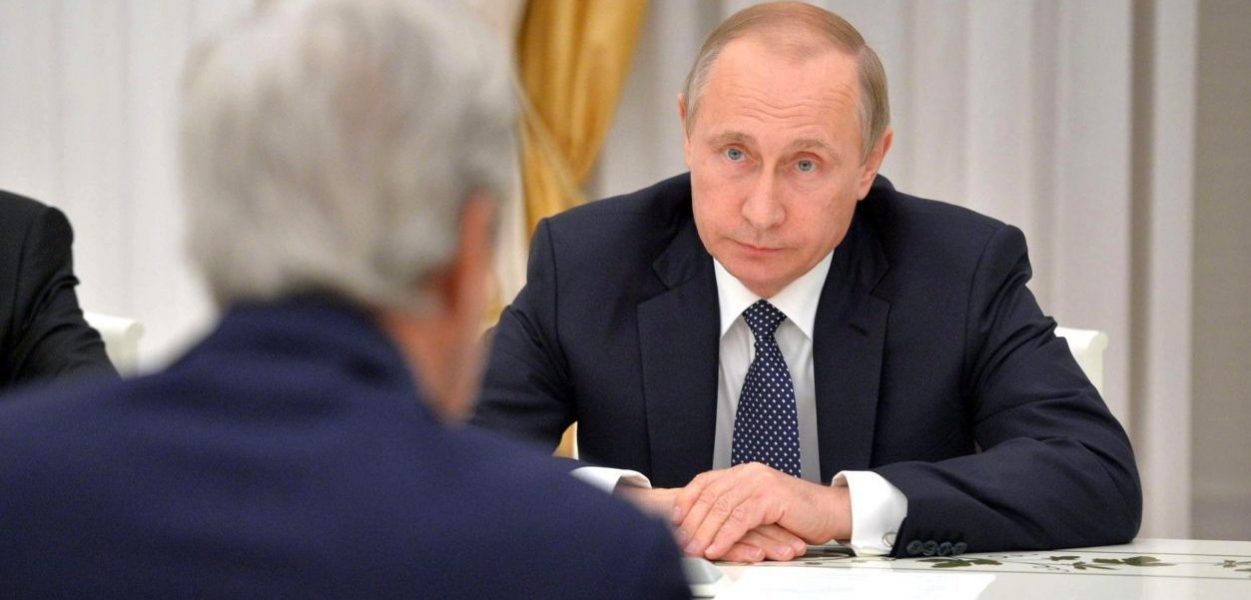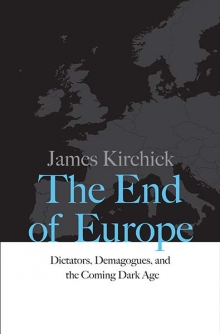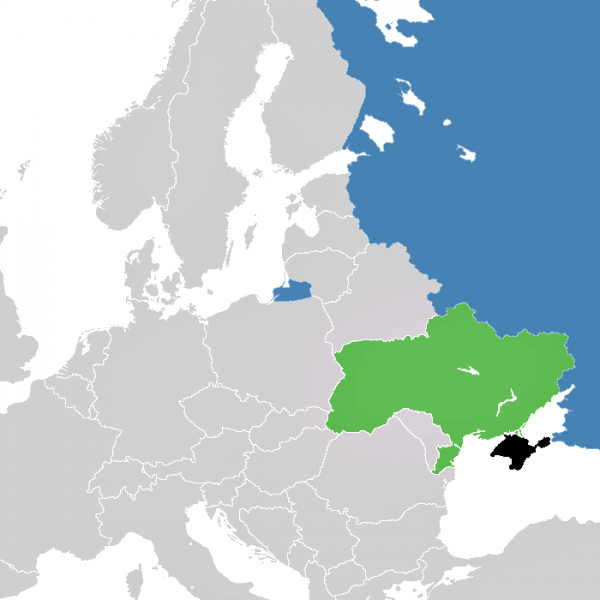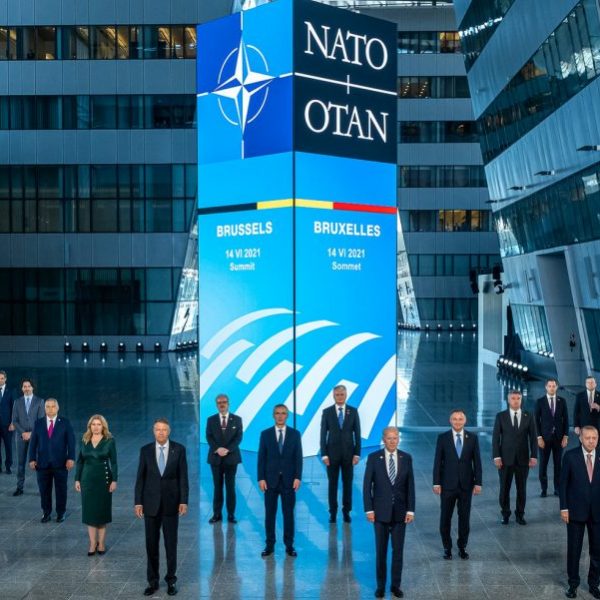Reports of the Russian-American Détente’s Demise Have Been Greatly Exaggerated
James Kirchick—
On the highly peculiar relationship between Donald Trump and Vladimir Putin, a conventional wisdom appears to have taken hold: however friendly the two presidents appear towards one another now, their strong personalities are a recipe for geopolitical conflict down the road. Trump and Putin may have exchanged warm praise, but once they start interacting with one another as leaders, this thinking goes, their massive egos and sensitivity to appearing weak will quickly reduce Russian-American relations to a frosty chill, if not outright hostility. Just like Trump’s predecessors, who entered office promising positive relationships with Russia (George W. Bush gazed into Putin’s “soul,” Barack Obama launched an ill-starred “reset”), so too will the current president’s sanguine hopes for cooperation be deflated by the invariable reality of great power conflict.
“Similarities can bring contempt,” Nina Khruscheva, great-granddaughter of the famously pugnacious Soviet premier, recently told McClatchy news service under the headline “Personalities of Trump, Putin may be too similar to get along well.” Andras Racz, a Hungarian expert on Russia, predicts to the New York Times that the Trump-Putin reset will result in “a brief honeymoon, but nothing else, soon overwritten by conflicting interests.” (Ariel Cohen of the Atlantic Council, meanwhile, says the honeymoon is already over). Though Trump’s critics rightly worry of a “grand bargain” with Moscow, “an overlooked risk is that Mr. Trump, double-crossed and thin-skinned, will end up presiding over a dangerous and destabilizing falling-out with Mr. Putin,” warns The Economist.
It’s entirely possible that Trump, a narcissist of cosmic proportions, will take personal offense at something Putin does and extrapolate that perceived insult into a hardening of American foreign policy towards Russia. As I’ve argued previously, Trump’s worldview is largely an extension of his disordered personality: he denigrates American allies because he doesn’t understand the basic human concept of friendship. For Russia hawks, Trump’s inability to distinguish the personal from the political has a potential upside, however, in that Trump will grow tough on Putin once he feels slighted by him.
This analysis—expectant that Trump will eventually move away from his Russophilia to a more traditional American skepticism of the Kremlin and its aims—rests upon two questionable assumptions. The first is that it supposes the Russians don’t understand Trump’s neediness and tendency to personalize absolutely everything, and will inevitably make the mistake of humiliating the American president in the eyes of the world. This, however, is a rather naïve assessment of the Russians (and Vladimir Putin in particular), who have read Trump remarkably well, something that should come as no surprise considering how drawing psychological profiles is what lifelong KGB agents like Russia’s president do best. Indeed, exploiting Trump’s epic lust for affirmation was likely what Putin tried to do when, back in the winter of 2015, he mouthed a few anodyne remarks about the then-Republican primary frontrunner being “colorful” and “the absolute leader” of the presidential race (statements more neutral than complimentary). Trump, serial exaggerator that he is, claimed Putin called him “brilliant.” Asked by George Stephanopoulos the following summer why he was so hesitant to mouth a single critical word about the Russian leader, Trump replied, incredulously, “He says Donald Trump is going to win and Donald Trump is a genius, and then I have people saying you should disavow. I said, I’m going to disavow that?”
The larger flaw in predicting the imminent breakup of the Putin-Trump bromance is that it downplays the ideological component of Trump’s nationalist-isolationist worldview and its consonance with Russian foreign policy aims. In his abjuring alliances and America’s postwar world leadership role, Trump strays from a bipartisan American foreign policy consensus with which Russian aggression is fundamentally incompatible. Though George W. Bush and Barack Obama embodied ideologically dissimilar foreign policy traditions, (conservative and liberal internationalism, respectively), neither could abide what became the core conflicts in Russian-American relations during their presidential administrations: the assertion of a Russian sphere of influence and the invasion of sovereign nations. Under President Bush, NATO underwent its “big bang” expansion into seven Central and Eastern European countries, and there was no way things could return to normal after Russia’s 2008 invasion of Georgia. Likewise, despite years of overlooking Russian domestic repression and military buildup, Obama became disillusioned with Moscow after its annexation of Crimea and invasion of Eastern Ukraine in 2014.
Whereas Presidents Bush and Obama ultimately drew a line in the sand over Russia invading its neighbors and thus overturning a core component of the rules-based international order, Trump shows no such fidelity to what has been a core American national security interest since the Second World War: the principle that national borders, particularly those in Europe, must not be changed by force. Never mind that Trump ran as perhaps the most pro-Russian presidential candidate in American history (for reasons that continue to form a cloud over his presidency), going so far as to speculate that the annexation of Crimea was legal, or that he has drawn a moral equivalence between Russia and the United States. More importantly, he seems at ease with the notion that large powers like Russia should enjoy regional spheres of interest wherein they are permitted to bully and intimidate weaker neighbors who must endure limited sovereignty. Likewise, Trump’s persistent attacks on NATO and seeming support for the disintegration of the European Union represent a dramatic shift from 70 years of American engagement with the Continent.
Focusing on Trump and Putin’s personal relationship risks reducing the totality of Russian-American relations, a rather grand subject, to little more than a psychological parlor game. Ultimately, the persistence of conflict between Russia and America, (which has existed since the Bolshevik Revolution), is attributable to fundamental disagreements over everything from the role of the individual in society to the basic premises of the international state system and respect for national borders. The presidency, however, provides a great deal of leeway in shaping foreign policy, and Trump may be able to achieve a “grand bargain” with Moscow if he’s willing to forgo what have traditionally been core American interests, like opposing armed annexations of a country’s sovereign territory. Western observers who confidently predict an impending deterioration in Russian-American relations due to the temperaments of the countries’ leaders unwittingly mirror those Kremlin propagandists who portray the serious (perhaps even intractable) ideological disputes between Washington and Moscow as the result of nothing more than individual personality clashes. This tendency to dilute longstanding, fundamental disagreements over complex matters of statecraft to mere personal disharmony was visible in Russian state media coverage of Hillary Clinton, whose election to the presidency would allegedly result in “World War III” because the former Secretary of State is an “unstable,” “sick” “warmonger.”
Trump’s conception of the American role in the world is one that can accommodate Russian imperialism, a radical departure from every postwar American president. The question is whether the vast American national security, military and diplomatic bureaucracies will stand in the way of such a geostrategic retrenchment and realignment. Had any other major party candidate become president, it is almost certain that the long-defined national interests of the United States would have prevented an entente with Russia, regardless of the personal relationship between the two leaders. The Putin regime, after all, is a criminal enterprise committed to upending the liberal international order built and sustained by the United States, and no normal American president animated by a basic understanding of his or her country’s power and purpose in the world could tolerate a Russia that occupies its neighbors, subjugates its people, and threatens the political cohesion of Europe. But, as we are repeatedly reminded, Donald Trump is not a normal American president.
James Kirchick is a fellow at the Foreign Policy Initiative in Washington and a correspondent for the Daily Beast. His articles have appeared in the Washington Post, the Weekly Standard, the Wall Street Journal, and Foreign Policy. He lives in Washington, DC.



























